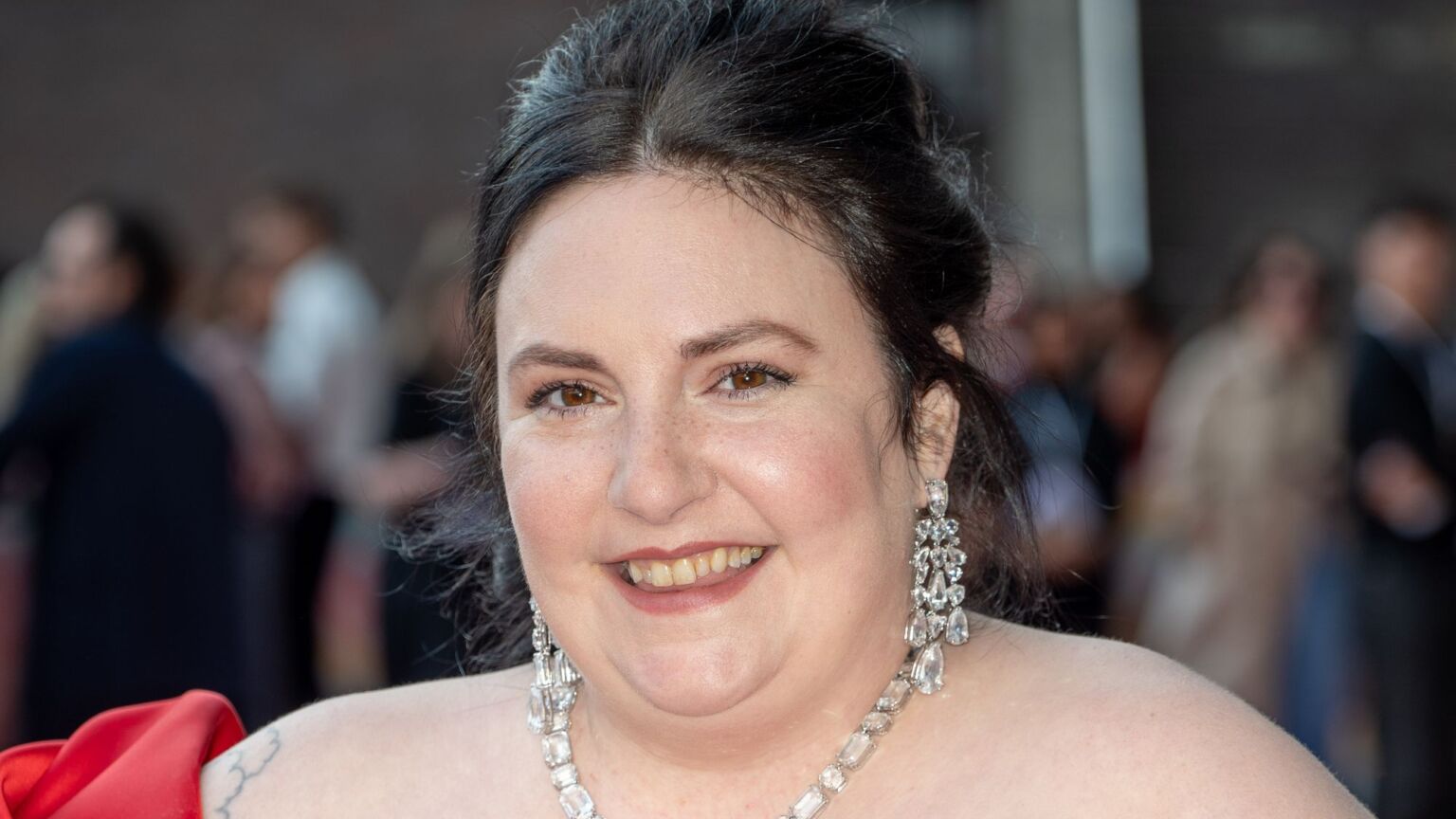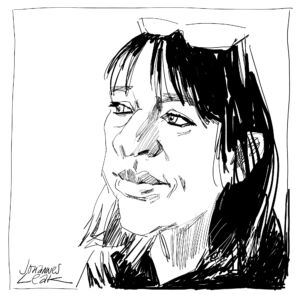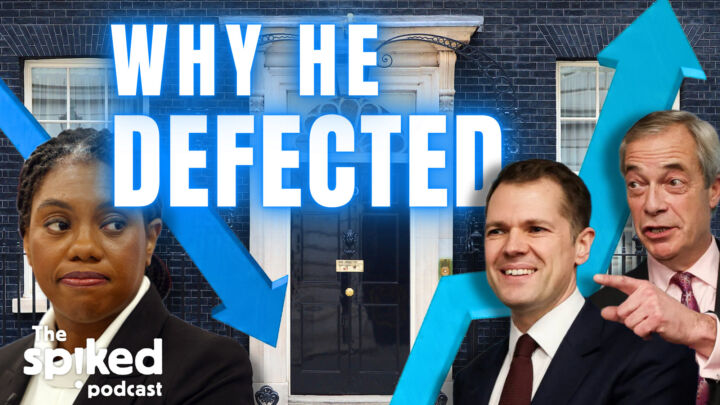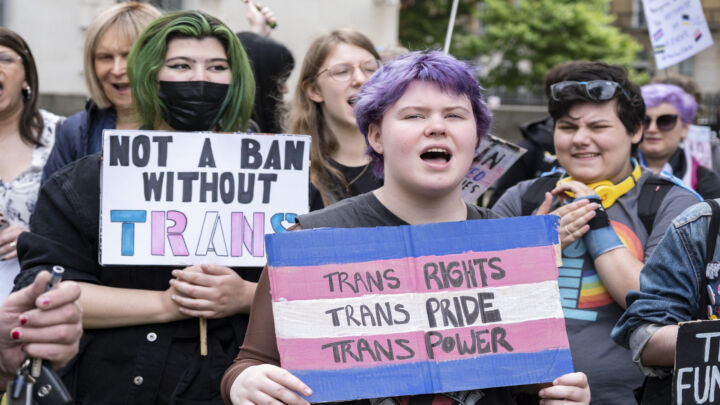London is not your safe space, Lena Dunham
The Girls creator is the latest woke, whiny celeb to flee Trump’s America for Blighty. God help us.

Want unlimited, ad-free access? Become a spiked supporter.
Few things, for me, are as low-key amusing as the ‘comeback’ of someone who I hadn’t realised had ever been away. Take the example of Lena Dunham, the American entertainer, who the BBC website got quite excited about recently:
‘Lena Dunham is almost synonymous with New York City. The US actress, writer and director rose to fame with her award-winning semi-autobiographical series, Girls, which followed four twentysomething women as they navigated love, life and friendship in the Big Apple. But her latest project – a Netflix rom-com loosely based on her life over the last few years – is set on the other side of the Atlantic. Too Much follows Jessica, who moves from New York to London after breaking up with her boyfriend. Just as Dunham did when she moved to London in 2021, Jessica quickly learns the important things about the UK: everybody loves Paddington and the Jaffa Cake debate is highly contentious (it’s definitely a biscuit).’
Contradicting Dunham’s reputation for being edgy, it sounds like this one’s going to make Notting Hill look like Kill Bill. I’m betting there won’t be any breath of the lawless, loveless London that Sadiq Khan has overseen the rise of (no machetes or tent cities). I bet we Brits will all be shown queuing at the drop of a hat and saying, ‘Musn’t grumble!’, when asked how we are. It’ll be about as accurate a rendering of Londinium as Dick Van Dyke’s chimney sweep in Mary Poppins.
To be fair, anything Dunham makes would irritate me. I feel that I have something like an allergy to her. There’s the bovine quality of her face – so at odds with the razor-sharp intelligence her fans claim she has. And there’s the way she appears to have allowed random passers-by to graffiti on her body (if you’re that rich and don’t bother with a decent tattooist, you’re either pathologically stingy or pathetically self-loathing). These combine to make up a most unappealing visual. I can’t talk – I’m a toothless, grey-haired hag. But then, I stopped stripping off in public when I was 18. Dunham spent quite a lot of time doing so throughout her most famous years, during what seemed like an endless series of Girls.
The one reason I can think of for liking the new show is that she won’t be in it. As the BBC reports with an almost audible sigh of sorrow:
‘There was also another reason she chose to step away from the spotlight. While filming Girls in her 20s, Dunham’s body was heavily scrutinised and last year, she told the New Yorker she “was not up for having my body dissected again”. She explains that body shaming was part of the reason she stepped further behind the camera. “Just being perceived was overwhelming”, she says. She believes society has made some strides towards being more body positive, but says the culture we live in is still “so deeply fatphobic, misogynistic, racist and ageist and that informs our dynamic with our body”.’
But without her unattractiveness, I doubt that Dunham would have made it so big. She was not so much the voice of a generation, but the diversity hire of a generation. It’s true that entertainment is massively biased towards beautiful women. But once in a while, the men who run television have to let a plain woman on, usually in comedy, just so they’re not revealed as being shallow lechers. Over here, the ghastly Dawn French comes most to mind, a woman who was similarly fawned over, one felt, for being fat. But she was also something of an empty vessel, lauded way above her actual talent, and really rather thick and unpleasant, as her recent dismissal of the 7 October pogrom revealed.
And now Britain has got the pair of them. Inevitably, Dunham supported Hillary Clinton in 2016, threatening to move to Canada if Trump won, before declaiming self-adoringly: ‘I can survive staying in my country, to fight and love and use my embarrassment of blessings to do what’s right.’ (Embarrassment is just about the only appropriate word here.) Unfortunately, she ended up here in Britain instead, writing an over-long and melodramatic essay for the New Yorker last month called ‘Why I broke up with New York’.
But one still feels that, despite her protestations of love for London, this is a rebound thing. She writes:
‘The city, which is large enough to contain all five New York boroughs twice, had a spaciousness I could not get over, streets so wide that the buildings seemed to be stepping aside for me to pass. Three decades of urban sense memory cleared, as if I had woken up to a system upgrade and damaged files had been erased in the process. Maybe it was the blank slate of it all, the fact that I’d yelped in pain on exactly zero London street corners.’
It’s 30 years since I left London, but I still recall the visceral excitement of being a teenager there, ready to make my way in the world. I was thrilled to be even a tiny part of this huge exciting machine which facilitated ambition, and promised endless amounts of fun, love and money. In contrast, Dunham sees our capital as a ‘blank slate’ where she hasn’t yet had her heart fractured, where she can lick her wounds while still being important enough that buildings step aside to let her pass. (What’s she on?)
I couldn’t help comparing her with Hollywood emigrés to London from the old days; the likes of Joseph Losey and Stanley Kubrick and Ava Gardner. Gardner was the exact opposite of Dunham, who is related to the actual Tiffany family – as in Breakfast At – and very expensively educated. From an impoverished sharecropper family, Gardner was working in the tobacco fields of Virginia at the age of 12. By the age of 17 her extreme beauty got her a screen test. When MGM boss Louis B Mayer saw it, he reportedly said, ‘She can’t sing, she can’t act, she can’t talk, she’s terrific!’. He offered her a seven-year contract. Her physical appearance meant that she was treated like a precious piece of meat (‘The world’s most beautiful animal’ was the studio’s tagline). In the 1960s, she moved to London alone, seeing it as a beacon of sanity:
‘I’ve always loved London. So it rains sometimes. It rains everywhere sometimes. And I happen to like the rain. More important, the British leave you alone. They take three or four photographs when you arrive and then they forget you exist. It’s a very civilised town. If I choose to walk down the street or go across the park with my dog, nobody bothers me. When people do recognise me, they smile and nod their heads, which is a hell of a lot different from the treatment I’ve been used to.’
Compared with Gardner’s graciousness, the ‘escape’ of modern thespians from Trump’s America (including Rosie O’Donnell to Ireland and Ellen DeGeneres to England) seems spoiled and petulant. Dunham got here first, and I can’t help thinking that part of the reason she came here was that after being the darling of the liberal showbiz set, she found herself in that fabled woke hazing experience, the ‘purity spiral’, with Girls being denounced as ‘too white’, among other things.
Even as an enemy of woke, I find it hard to have sympathy for Dunham, who once boasted about reporting two stewardesses to their airline for having an opinion different to hers on trans-related issues in a private talk she overheard. That’s what passes for left-wing politics now – snitching to the bosses if the ‘deplorables’ dare have an opinion other than yours. Like a lot of neurotic rich girls who yell about how much Western women are oppressed, when push came to shove, Dunham shoved women in front of the bus so that a crossdresser could drive the men’s-rights juggernaut all over them. As a woke woman, she will mouth feminist platitudes until the sacred cows come home – but she is a fauxminist, still seeking the approval of the Woke Bros, as surely as Hannah Horvath rendered herself sexually exploitable to any goateed hipster who gave her a second glance.
No ditsy debate about Jaffa Cakes can ever smooth over the ugliness and emptiness of the whole Lena Dunham shtick.
Julie Burchill is a spiked columnist. Follow her Substack, Notes from the Naughty Step, here.
£1 a month for 3 months
You’ve hit your monthly free article limit.
Support spiked and get unlimited access.
Support spiked – £1 a month for 3 months
spiked is funded by readers like you. Only 0.1% of regular readers currently support us. If just 1% did, we could grow our team and step up the fight for free speech and democracy.
Become a spiked supporter and enjoy unlimited, ad-free access, bonus content and exclusive events – while helping to keep independent journalism alive.
———————————————————————————————————————————–
Exclusive January offer: join today for £1 a month for 3 months. Then £5 a month, cancel anytime.
———————————————————————————————————————————–
Monthly support makes the biggest difference. Thank you.










Comments
Want to join the conversation?
Only spiked supporters and patrons, who donate regularly to us, can comment on our articles.